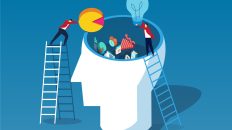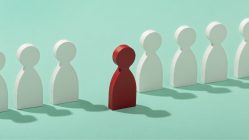For all of the headaches commuting triggered, from sitting in traffic to being crammed into busy trains and metros, looks like there may have been some psychological benefit to our once loathed daily travel routines, after all. While it’s true that previous studies have linked commuting, especially by car, to multiple illness-including higher blood sugar, high blood pressure, and anxiety, experts say most people now spend that time working.
Since the idea of ‘commute’ has almost disappeared from our daily routine because of the limited travel as a result of the pandemic, people are now adopting what is called a ‘fake commute’. The term maybe new, the idea not so much. People are really surprised by the term and confused as to what that means, says Dr. Sylvain Charlebois, director of the Agri-Food Analytics Lab at Dalhousie University in Halifax. According to Dr. Charlebois, the idea of leaving home to run some errands, get a cup of coffee, move to the balcony or go for a stroll to the nearby park, before starting one’s work (which will be at home) is what is called a fake commute. The idea of primarily ‘faking’ a commute in the Covid world, which actually happened in the pre-Covid world, for office goers to create a sense of boundary to help an individual play the different roles in the life smoothly (employee, spouse, parent) instead of mixing multiple roles at once and making it difficult to execute any role effectively.
According to experts, exercising before work time/‘logging’ in from home, engaging in any other kind of activity such as meditation, yoga or doing any kind of activity to create a clear distinction between the multiple roles one needs to play (employee, spouse, parent) is very beneficial for the mental health. According to David Zweig (Professor, University of Toronto), the clear walls or boundaries that was present in the pre-Covid world that separated one activity from another, professionally and personally has completely vanished in the post-Covid world, so it is of utmost importance that people find ways either psychologically or otherwise to recreate those boundaries that help maintain certainty and normalcy in one’s lives. It is true that not everybody is enjoying working from home, rather not anymore, but they don’t have any other option too. So it becomes essential that people find healthy ways to cope with the unforeseen changes and challenges that are currently grappling the world.
The idea of primarily ‘faking’ a commute in the Covid world, which actually happened in the pre-Covid world, for office goers to create a sense of boundary to help an individual play the different roles in the life smoothly (employee, spouse, parent) instead of mixing multiple roles at once and making it difficult to execute any role effectively.
According to Nita Chhinzer (Professor, University of Guelph), the existing research on work from home has always assumed a level of voluntariness to the current situation. The question of choice was there for employees, so it was not difficult to get used to that work scenario at first. However, as times are moving and so are the problems of work from home (WFH), it is important that a faux commute is adopted to differentiate the time spent working at home from one’s non-job-related time there.
Christoph Stengel (software developer, Germany) told the BBC that the Germans have a word that describes the reverse commute — the time post work and the start of the leisure/rest period: Feierabend. “Feierabend has two meanings,” First, it’s the moment you stop working for the rest of the day. … Second, it’s the part of the day between work and going to bed.” Yes, looks like it would help people all over the world to adopt to the German practice of Feierabend into their daily lives and include ways and activities that clearly help divide the two times better.
The different roles and lives we led in the pre-pandemic world has been shed and now all roles and activities bleed into one another, whether we want it or not. This is how it is going to be for a very long time. The idea of first, second and third space all being crammed into one is difficult, and the choices are limited as well. Whether it’s taking a walk to the nearest park/around the block, or even simply changing your clothes, experts suggest that it is important to or habit to mentally signal a transition between work and personal life.
Fake commute, like masks and hand sanitizers, are the new additions of 2020, that will help us maintain our health, in more ways than one.
























